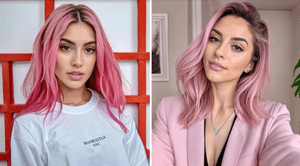
Generative AI-created virtual influencers are now stealing business from human content creators as big brands now embrace AI avatars to promote their products on social media.
Virtual influencers, created by using artificial intelligence (AI) tools, have broken into the growing $21 billion content creator economy, reports The Financial Times.
“We were taken aback by the skyrocketing rates influencers charge nowadays. That got us thinking, ‘What if we just create our own influencer?’ ” said Diana Nunez, co-founder of the ad agency called The Clueless.
Nunez created Aitana Lopez and the “rest is history”.
Pink-haired Lopez is now a virtual influencer that is followed by more than 200,000 people on social media.
The virtual influencer now earns more than Rs 9 lakh per month.
“Brands have paid about $1,000 a post for her to promote their products on social media — despite the fact that she is entirely fictional,” the report noted.
The Clueless has another creation in development, which it calls a “curvy Mexican” named Laila.
Over the past few years, there have been partnerships between luxury brands and virtual influencers, like Kim Kardashian’s make-up line KKW Beauty with Noonoouri, and Louis Vuitton with Ayayi.
The report cited a Meta ad analysis that claimed ad recall was 91 per cent cheaper per person when H&M used virtual models.
An Instagram analysis of an H&M advert featuring virtual influencer Kuki found that it reached 11 times more people and resulted in a 91 per cent decrease in cost per person remembering the ad than a traditional ad.
Brands have been quick to engage with virtual influencers as a new way to attract attention while reducing costs, according to the report.
Lil Miquela virtual influencer charges up to thousands of dollars for product promotion and has worked with brands like Burberry, Prada and Givenchy. Lil Miquela has nearly 3 million followers.







